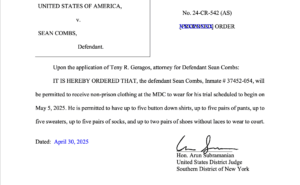The mass rape trial involving Dominique Pelicot has drawn significant public attention as prosecutors aim for a 20-year sentence for the defendant, who allegedly drugged his ex-wife, Gisèle, and facilitated the rape by over 50 men. Prosecutors argue that Pelicot's actions reflect severe sexual deviances that warrant maximum legal penalties under French law.
Prosecutors Seek Maximum Sentence in Shocking French Mass Rape Case

Prosecutors Seek Maximum Sentence in Shocking French Mass Rape Case
A French court hears disturbing allegations as prosecutors demand 20-year imprisonment for a husband accused of orchestrating a decade-long abuse.
Dominique Pelicot, aged 72, faces grave accusations in a trial that has captivated France. Prosecutors are calling for a 20-year prison term for Pelicot, who has pleaded guilty to drugging his former wife, Gisèle, over a span of ten years while bringing in numerous men from the internet to assault her. Prosecutor Laure Chabaud has emphasized the serious nature of the crimes, noting that "twenty years is both a lot and too little," highlighting the horrific and repeated violations endured by Gisèle.
Chabaud characterized Pelicot’s actions as a pursuit of pleasure derived from the humiliation and debasement of his spouse, whom he claimed to love. The prosecutors are also requesting that Pelicot undergo medical treatment for ten years following his incarceration. Another prosecutor, Jean-François Mayet, underscored the societal implications of the trial, urging that it is critical for changing gender relations and acknowledging the pervasive issue of rape culture.
Gisèle Pelicot’s courageous decision to publicly waive her anonymity and participate in the trial has sparked a national discourse on consent and the dangers of drug-induced coercion. As the trial reached its final phase, public outcry has been evident, with posters around the Avignon courthouse demanding justice and highlighting the severity of the charges.
While Pelicot faces a stringent sentence, some co-defendants like Jean-Pierre Marechal are seeking lesser punishments. Marechal, who confessed to drugging and assaulting his own wife under Pelicot’s direction, may receive a 17-year sentence. Most of the 50 involved men have denied the charges, claiming ignorance about Gisèle's state during the assaults. Prosecutor Chabaud countered this, insisting that consent cannot be inferred from silence.
Amidst the trial proceedings, French Prime Minister Michel Barnier called this case a crucial turning point in the fight against violence toward women, announcing government measures, including funding for drug-testing kits at pharmacies and expanding reporting systems for victims in hospitals. Following an intense trial period that began in September, the court is expected to deliver its verdict by December 20.
Chabaud characterized Pelicot’s actions as a pursuit of pleasure derived from the humiliation and debasement of his spouse, whom he claimed to love. The prosecutors are also requesting that Pelicot undergo medical treatment for ten years following his incarceration. Another prosecutor, Jean-François Mayet, underscored the societal implications of the trial, urging that it is critical for changing gender relations and acknowledging the pervasive issue of rape culture.
Gisèle Pelicot’s courageous decision to publicly waive her anonymity and participate in the trial has sparked a national discourse on consent and the dangers of drug-induced coercion. As the trial reached its final phase, public outcry has been evident, with posters around the Avignon courthouse demanding justice and highlighting the severity of the charges.
While Pelicot faces a stringent sentence, some co-defendants like Jean-Pierre Marechal are seeking lesser punishments. Marechal, who confessed to drugging and assaulting his own wife under Pelicot’s direction, may receive a 17-year sentence. Most of the 50 involved men have denied the charges, claiming ignorance about Gisèle's state during the assaults. Prosecutor Chabaud countered this, insisting that consent cannot be inferred from silence.
Amidst the trial proceedings, French Prime Minister Michel Barnier called this case a crucial turning point in the fight against violence toward women, announcing government measures, including funding for drug-testing kits at pharmacies and expanding reporting systems for victims in hospitals. Following an intense trial period that began in September, the court is expected to deliver its verdict by December 20.



















